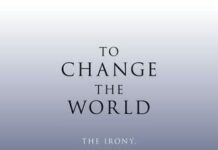
Ebook Info
- Published: 2006
- Number of pages: 118 pages
- Format: PDF
- File Size: 0.67 MB
- Authors: James Davison Hunter
Description
In the wake of a bitter presidential campaign and in the face of numerous divisive policy questions, many Americans wonder if their country has split in two. People are passionately choosing sides on contentious issues such as the invasion of Iraq, gay marriage, stem-cell research, and the right to die, and the battle over abortion continues unabated. Social and political splits fascinate the media: we hear of Red States against Blue States and the “Religious Right” against “Secular America”; Fox News and Air America; NASCAR dads and soccer moms. Is America, in fact, divided so clearly? Does a moderate middle still exist? Is the national fabric fraying? To the extent that these divisions exist, are they simply the healthy and unavoidable products of a diverse, democratic nation? In Is There a Culture War? two of America’s leading authorities on political culture lead a provocative and thoughtful investigation of this question and its ramifications. James Davison Hunter and Alan Wolfe debate these questions with verve, insight, and a deep knowledge rooted in years of study and reflection. Long before most scholars and pundits addressed the issue, Hunter and Wolfe were identifying the fault lines in the debate. Hunter’s 1992 book Culture Wars put the term in popular circulation, arguing that America was in the midst of a “culture war” over “our most fundamental and cherished assumptions about how to order our lives.” Six years later, in One Nation After All, Wolfe challenged the idea of a culture war and argued that a majority of Americans were seeking a middle way, a blend of the traditional and the modern. For the first time, these two distinguished scholars join in dialogue to clarify their differences, update their arguments, and search for the truth about America’s cultural condition.
User’s Reviews
Editorial Reviews: Review “Essential for serious academic collections.” Scott H. Silverman, Bryn Mawr College, Library Journal, 1/15/2007″This collection of essays is a valuable contribution to the conversation concerning the notion of culture war in the United States. It would be useful as a text for a graduate seminar dealing with the religion and society of culture and politics.” Journal of Church and State, 5/1/2007″Two important essays focus on the existence or nonexistence of a culture war….Comments on the essays from historian Gertrude Himmelfarb and political scientist Morris P. Fiorina, and additional responses from Hunter and Wolfe, provide a rich debate. Highly recommended.” CHOICE, 6/1/2007 About the Author James Davison Hunter is the William R. Kenan Professor of Sociology and Religious Studies at the University of Virginia, where he is also executive director of the Institute for Advanced Studies in Culture. Among his several books is The Death of Character: On Moral Education of America’s Children (Basic Books, 2000). Alan Wolfe is a professor of political science at Boston College, where he directs the Boisi Center for Religion and American Public Life. He is the author of numberous books, most recently Return to Greatness: How America Lost Its Sense of Purpose and What It Needs to Do to Recover It (Princeton, 2005).
Reviews from Amazon users which were colected at the time this book was published on the website:
⭐Glad to have this very helpful look at the topic.
⭐I received the book in excellent conditions.
⭐Good
⭐This is a wonderful debate on a topic that has always interested me. These are four excellent scholars: James Davison Hunter, Gertrude Himmelfarb, Morris P. Fiorina, and Alan Wolfe.The first thing I’ll say is that this book is not titled well. Hunter says, “If the culture war is a myth and the real story is about the consensus that exists in “the middle.” Then why is it that the middle cannot put forward, much less elect, a moderate who represents that consensus, with all of its complexity and ambivalence on so many issues? If the center is so vital, then why is it that the extremes are overrepresented in the structures of power – not least, political power?” – James Davidson Hunter (p32) ajority. In 2006 he writes, “Far weaker than typical political commentary portrays it, the culture war is on its last legs, and those who continue to insist on fighting it are likely to find themselves on the sideline in America’s political future.” – Alan Wolfe (p43)Something that doesn’t exist can hardly be on its way out. Not for eight years b-god. But Professor Wolfe points out that compared to America in the 1860s and the 1960s this phenomenon we call a culture wars can scarcely be called a `war’. There are no massive battlefields or people bleeding to death in the streets.None of these scholars deny that the words `culture wars’ refers to something that has been going on in America since the late 60s. This debate is not about conjecture, that is, whether a culture war exists, but rather about the definition of the words `culture war’, and its magnitude. The consensus seems to be that there are about 15 percent extremists on the Left and Right, and about 70 percent moderates in the middle. People in the center may fall on either side of the many divisive cultural issues. But it’s the political and media elites who command the red/blue division. Both sides in this debate agree on the importance of elites in the cultural divide. Where they differ is in whether the elites exploit issues that are truly divisive among the masses (i.e. there is a culture war), or if they exacerbate the hot-button issues that lead the masses hither and thither like sheep (i.e. they create the cultue war), or if they are playing to an audience that has pretty much left the building (i.e. there is no culture war save for the Sixties fetishes of the elites).So the question becomes: Do the masses really care about these issues? I’ve been surfing Amazon non-fiction book reviews for some time now. And I’ve noticed that books that address the culture wars in one of its many aspects get a tremendous amount of attention in terms of its number of reviews. But a book that is well written, informative, and balanced, but without political consequences won’t have anywhere near the number of reviews. I’m making the assumption here that most Amazonites are not elites. (Perhaps wannabe elites?) I think the culture war issues are important to a great many conscientious people. The popularity of so many media figures, and authors, on both sides of the culture wars speaks to this concern. But that brings up another issue.Gertrude Himmelfarb speaks of the, “degree of moral and esthetic nihilism” (p79) in our culture. Nihilism, strictly speaking, is neither left nor right. And if nihilism is prevalent in the 70 percent moderate masses, then that would explain why they are not part of the culture war left or right. They just don’t give a… care – one way or another. So how do we reconcile the word ‘war’ with the word ‘nihilism’?The culture wars emerged out of the turmoil of the late 60s. I think the paradox can be explained by a line in a famous poem by W. B. Yeats; a poem that has been permanently linked to this period:”the best lack all conviction, while the worst are filled with passionate intensity”- The Second Coming, W. B. Yeats, 1920I think we’ve incorporated Yeat’s vision in our collective and individual psyches. I’ve read many accounts by professors over the last four decades that describe the nihilism of their students, and the lack of their genuine interest in moral questions. At the same time we have this desperate intensity on certain hot-button issues; tempers flare, posts flame.If my description is accurate, I’d like to think this is a boomer phenomenon, a temporary manifestation of the `worst generation’. I’m all for Alan Wolfe’s response: let’s get over this culture war nonsense and address the real issues. I was encouraged by Obama’s election, because, I think he has a gen-Xer attitude. But I don’t think we’re out of the woods yet. And I’m not so sure this nightmare we call the culture wars will ever end – even after we boomers are all gone.It’s funny that I can agree with all four of these scholars even as they can’t agree with each other. This is a great book. There are many more angles than the one I provide. I’m surprised that in five years it hasn’t gotten more reviews.* * *Added November 18, 2016After the 2016 Presidential race i can only laugh at my quote of Professor Wolfe, that the culture wars in America is on its last legs. Damn strong legs I’d say.
⭐I must admit that in the few months I’ve been studying the subject, I’ve become a Hunter fan. Although new to the subject, I tried hard to find some flaw in his work – but this guy is super-smart and I couldn’t find any short-coming. (Scientists are supposed to read and think critically.) It gave me a leg-up to read this debate in which some seasoned experts had a go at it. I’m still a Hunter fan. What I got from the book was an understanding beyond what Hunter is focused on but as if all in one package of broader knowledge. I immediately ordered 3 more Pew Forum dialogues.
⭐I read this for a college class, so I didn’t exactly get much choice in the matter, but I found the reading to be interesting, fairly engaging and not too difficult.
Keywords
Free Download Is There a Culture War?: A Dialogue on Values and American Public Life (Pew Forum Dialogue Series on Religion and Public Life) in PDF format
Is There a Culture War?: A Dialogue on Values and American Public Life (Pew Forum Dialogue Series on Religion and Public Life) PDF Free Download
Download Is There a Culture War?: A Dialogue on Values and American Public Life (Pew Forum Dialogue Series on Religion and Public Life) 2006 PDF Free
Is There a Culture War?: A Dialogue on Values and American Public Life (Pew Forum Dialogue Series on Religion and Public Life) 2006 PDF Free Download
Download Is There a Culture War?: A Dialogue on Values and American Public Life (Pew Forum Dialogue Series on Religion and Public Life) PDF
Free Download Ebook Is There a Culture War?: A Dialogue on Values and American Public Life (Pew Forum Dialogue Series on Religion and Public Life)

